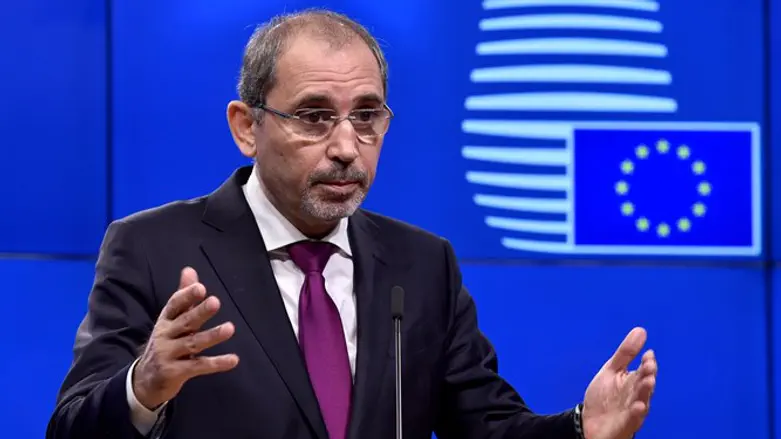
Jordan said on Thursday its commitment to uphold a peace treaty with Israel was not in question despite its decision to end the lease of the lands in Naharayim and Tzofar that were leased to Israel as part of the peace agreement.
Under the peace treaty, the two areas were recognized to be under Jordanian sovereignty but the treaty gave Israel special provisions to use the land and allow Israelis free access.
Speaking to Reuters on Thursday, Jordanian Foreign Minister Ayman Safadi said the deal, which was signed in November 1994, had been conceived as a temporary arrangement from the start.
“That is why there was a time cap on it ... We acted within the provisions of the peace treaty. This is an indication of our commitment to the peace treaty. There has never been a question of our solid commitment to the treaty,” he told the news agency.
Safadi said the kingdom had contemplated the move for a while before the November 10 deadline.
Under the peace treaty, the deal would be automatically renewed unless either of the parties notified the other a year before expiry that it wished to terminate the agreement.
The kingdom was now awaiting Israel invoking a provision in the treaty to hold consultations after giving notice before the deadline, Safadi told Reuters.
“There will be no negotiations over sovereignty. But we will fulfill our obligation to engage in consultations to implement the termination...,” he stressed.
Safadi told Reuters that Jordan would respect its obligations toward Israelis in the peace treaty.
“We will fulfill our legal commitments in a manner that recognize whatever rights there are for Israel, particularly the property rights. We will respect these rights in accordance with Jordanian laws that respects private property of non-Jordanians,” he added.
On Sunday, King Abdullah II of Jordan announced that he had decided not to extend the part in the 1994 Jordanian-Israeli peace treaty which leases regions of the Arava and Naharayim to Israel.
Prime Minister Binyamin Netanyahu later said that while he acknowledges Jordan’s right not to extend the lease, his government will open negotiations with the kingdom to secure an extension of the lease, which is slated to end in October 2019.
The Jordanian King made the announcement following massive protests in the Jordanian capital city of Amman demanding the government scrap the agreement with Israel.
Relations between the two countries had actually improved in recent months, with a meeting also held between King Abdullah and Netanyahu. This followed a period of sour relations in the wake of the incident in which an Israeli security guard at the embassy in Amman shot and killed two people after one of them tried to attack him.
